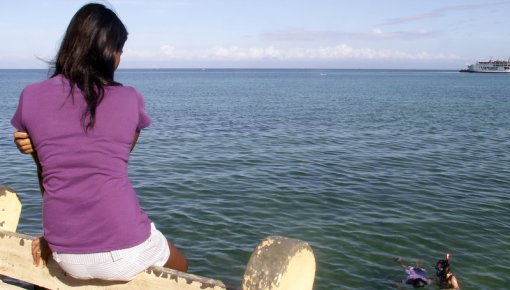I had to learn to inject myself
The first time I tried to inject myself I threw the insulin syringe away, almost as a reflex. Although I’m a nurse, I only felt comfortable being injected by others. I didn’t want to do it myself but I knew I had to learn. It took a surprisingly short amount of time – after about one to two weeks I was injecting myself.
After two weeks in hospital I was sent to a health resort for further treatment, where I had a very good doctor. She placed a lot of emphasis on mental wellbeing and had a holistic approach to diabetes. She made it clear that it’s all right to eat ice cream or drink wine every now and again. And that you shouldn’t be afraid to do sports, exercise and really try out everything that you want to do. That was really important to me – it made me think about things and made me feel better about my situation.
I started off with the intensive insulin therapy approach, using longer-acting and regular short-acting insulin. I often had low blood sugar from doing exercise. It was difficult to predict how much long-acting insulin I needed because I often ended up doing sports pretty spontaneously. That was a real downside for me because I couldn’t control it.

